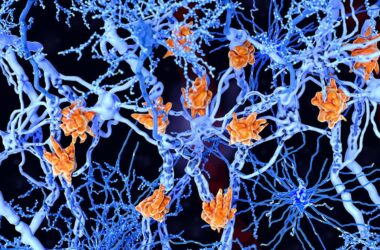DNA tests results can reveal if we have genes that make us more or less likely to get certain medical conditions
ABO/TEK IMAGE/SPL
Researchers have found a potential way to potentially prevent or slow down the progression of Alzheimer’s disease by reducing the activity of a high-risk gene variant.
The apolipoprotein E (APOE) gene has three variants, with the APOE4 variant being the biggest known genetic risk factor for Alzheimer’s disease. Having one copy of APOE4 more than doubles the risk of developing the disease, while having two copies increases the risk by eight to ten times.
Around 2% of people have two copies of APOE4, and those who carry two alleles of APOE4 have a high chance of developing Alzheimer’s by their 80s.
However, completely stopping the function of APOE4 is not considered safe due to the important role of the protein it produces. The protein, known as apolipoprotein E, is involved in functions like transporting cholesterol to the neurons. Knocking down APOE could potentially reduce the risk of Alzheimer’s but may affect other bodily functions, such as the heart or blood vessels.
The mechanism by which APOE4 increases the risk of Alzheimer’s is not yet fully understood. It is possible that the APOE4 variant produces a less functional version of the protein or causes it to behave unpredictably.
To gain insights into the potential effects of genetically modifying APOE4, researchers have identified individuals with loss-of-function mutations in APOE4 genes. Loss-of-function APOE genes are extremely rare. The researchers analyzed data from the Alzheimer’s Disease Sequencing Project database and found two older adults with APOE4 loss-of-function genes.
One of these adults, who lived past the age of 90, showed no signs of a protein called amyloid in the brain, which is associated with Alzheimer’s disease. The other person, aged 79, was considered cognitively normal.
This finding suggests that APOE4 contributes to the risk of Alzheimer’s by causing abnormal behavior in the corresponding protein. If the APOE4 gene produced a less functional protein, a loss-of-function gene variant would likely increase the risk of Alzheimer’s.
Based on these findings, the researchers propose that targeting APOE4 through gene editing could be a potential strategy to treat or prevent Alzheimer’s. However, it’s important to note that this study is based on a small sample size, and further research is needed.








